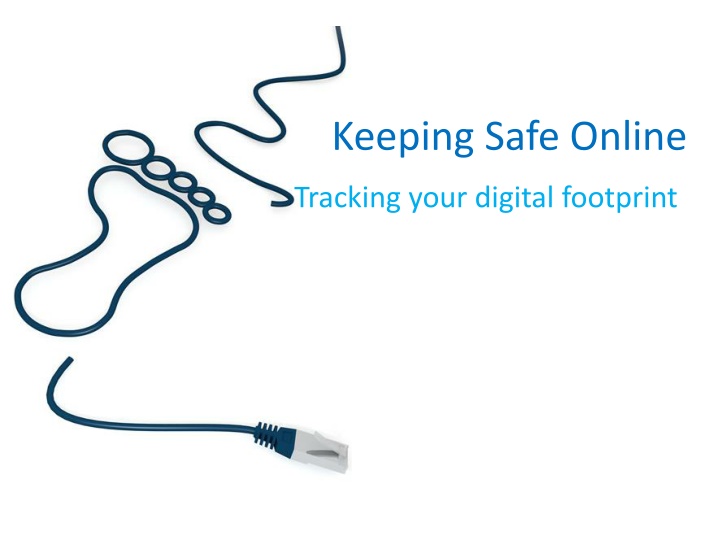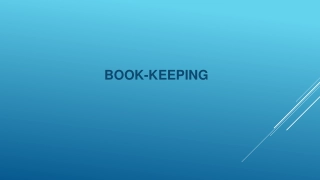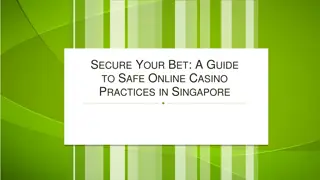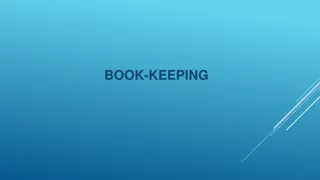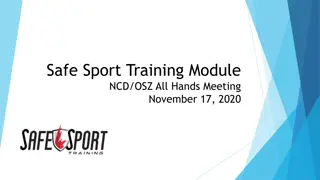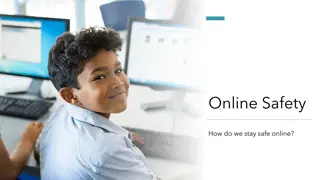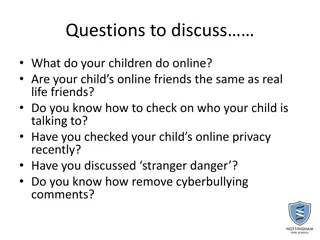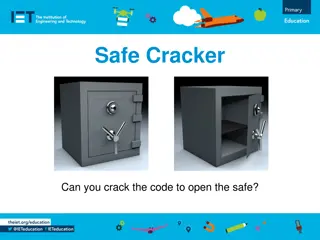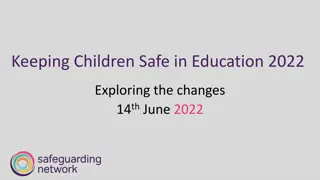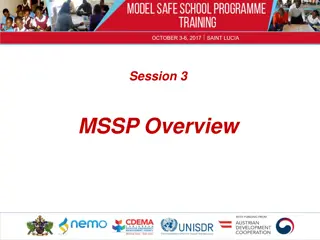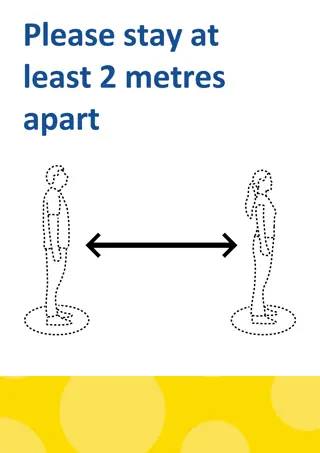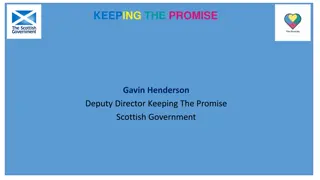Keeping Safe Online
Learn about ways to protect yourself while using the internet and how to manage your online presence effectively. Understand the importance of monitoring your digital footprint and keeping your information secure. Explore tips on enhancing your online privacy and security to safeguard your personal data from potential threats. Take control of your online identity and ensure a safer online experience by staying informed and proactive.
Download Presentation

Please find below an Image/Link to download the presentation.
The content on the website is provided AS IS for your information and personal use only. It may not be sold, licensed, or shared on other websites without obtaining consent from the author.If you encounter any issues during the download, it is possible that the publisher has removed the file from their server.
You are allowed to download the files provided on this website for personal or commercial use, subject to the condition that they are used lawfully. All files are the property of their respective owners.
The content on the website is provided AS IS for your information and personal use only. It may not be sold, licensed, or shared on other websites without obtaining consent from the author.
E N D
Presentation Transcript
Keeping Safe Online Tracking your digital footprint
The Law: Possessing images Having sexting photos or videos on your phone or computer If you are under the age of 18, the law sees you as a child. Therefore, if you have any indecent images or videos of somebody who is under 18, including yourself, you would technically be in possession of an indecent image of a child. This is an offence under the Protection of Children Act 1978 and the Criminal Justice Act 1988.
The Law: Sending Images Sending photos or videos If you are under 18 and you send, upload or forward indecent images or videos to friends or boyfriends/girlfriends, this would also be breaking the law, even if they are photos of yourself ( selfies ).
The Law - Receiving Images If you are in possession of images of a sexual nature of someone under 18 (even if it is your friend or boy/girl friend), you are committing an offence. Offenders can be placed on the sex offenders register and can be given a prison sentence. This is also the case if you have kept or printed out an image sent to you by a friend
Consequences Although the Police may not prosecute a teenager for sending or possessing indecent images, this could go down on their record. This could then affect any future employment such as teaching etc. Also could affect travel you can t go to America with a criminal record!
Would you do it? Why might you do it? What might be the consequences? Taking a photo of your friend and posting it on Facebook Taking a photo of your friend and editing it to make it funny, then posting it online Taking sexual image of yourself Sexting an image of yourself to your best friend or boy/girlfriend Taking a sexual image of your boy/girlfriend Sexting an image of your boy/girlfriend to your best friend Allowing your boy/girlfriend to take an image of you without clothes on Taking your clothes off for a laugh whilst skyping with your friends Taking your clothes off in front of a webcam because someone online has asked you to Printing out a sexual image that your friend sent to you to show an adult Sending a sexual image of yourself to someone you have met online Posting a photo of yourself having a good time at a party Sending a sexual image of yourself using snapchat Posting a sexual image you have received from your friend onto a website like Facebook
Digital Footprint 88 per cent of sexting images end up on public websites. (Internet Watch Foundation)
What to do Don't reply to messages that are meant to harass or upset you. This is likely to encourage the bully Keep the message: you don't have to read it, but keep it as proof. It is vital to have a record of the incident when you look for help or want to report it. Do not email or print out the image Report problems to people who can do something about it, parents, school, police. Block the sender. You don t have to put up with someone harassing you - block unwanted senders! Tell someone you trust. Talking to your parents, friends, a teacher, youth leader is usually the first step in dealing with any issue. Talk to Childline Respect yourself and respect others - being online is very public and very real, although it doesn t always feel that way.
Activities Write a short message that could be filmed and put on the website giving advice on internet safety Role play a situation to give advice on what to do Write a poem/rap/song giving advice on how to stay safe online Design a poster campaign to raise awareness. Design a slogan or catch-phrase to promote internet safety
